Professional Brewing Equipment Purchase Guide in 2025
Overview of Professional Brewing Equipment
Have you ever wondered how breweries consistently craft those delicious pints of beer you love? It all starts with professional brewing equipment. Brewing beer isn’t just an art; it’s also a science. From mash tuns to fermenters, every piece of equipment plays a crucial role in transforming raw ingredients into the final product. But what exactly is professional brewing equipment, and how do breweries decide what to use? Let’s dive in.
What Is Professional Brewing Equipment?
Professional brewing equipment refers to the specialized machinery and tools used by commercial breweries to produce beer on a large scale. Unlike homebrewing setups, professional systems are designed for high-volume production, precision, and efficiency. These setups include various components, such as mash tuns for mashing grains, fermentation tanks for yeast activity, and packaging lines to bottle or can the final product. The equipment varies in complexity and size, depending on the scale of the brewery.
Think of professional brewing equipment as the backbone of a brewery. Without it, brewing on a commercial scale would be nearly impossible. It allows brewers to control every step of the process, ensuring consistency, quality, and efficiency in production.
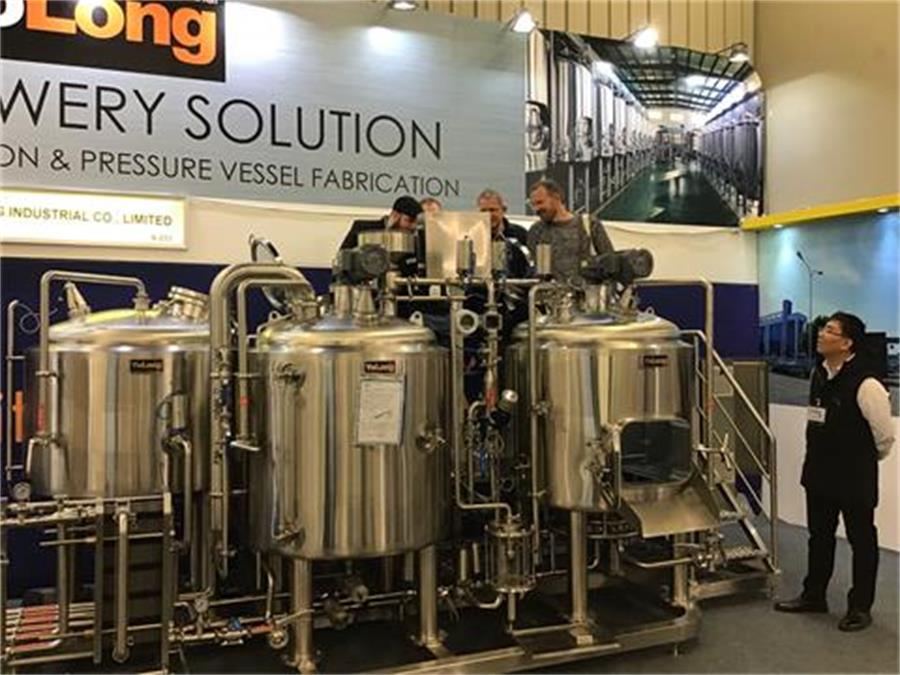
The Main Types of Professional Brewing Equipment
Professional brewing equipment is categorized into various stages of the brewing process. Here’s a breakdown:
1. Milling Equipment
Milling is the first step in brewing. Grains are crushed in a malt mill to expose the starches that will later be converted into sugars. Precision is vital here—too fine a grind can lead to stuck mashes, while too coarse a grind can lower efficiency.
2. Mash Tuns and Lauter Tuns
Mash tuns are vessels where milled grains are mixed with hot water to extract fermentable sugars. Lauter tuns are used to separate the liquid wort from the spent grains. Some breweries use combination systems that perform both tasks in a single unit.
3. Kettles and Whirlpool Tanks
The wort is boiled in kettles to sterilize it and concentrate the sugars. Hops are typically added during this stage for bitterness and aroma. Whirlpool tanks help separate the solid particles from the liquid after boiling.
4. Fermentation Tanks
Fermentation tanks are where the magic happens. Yeast is added to the cooled wort, and fermentation begins, converting sugars into alcohol and carbon dioxide. These tanks come in various sizes, depending on the brewery’s capacity.
5. Conditioning and Aging Equipment
Once fermentation is complete, the beer often undergoes conditioning or aging to develop its flavors. Bright tanks, where beer is clarified and carbonated, are commonly used in this stage.
6. Packaging Lines
The final step involves bottling, canning, or kegging the beer. Professional breweries use automated packaging lines to streamline this process and maintain consistency.
The Main Purpose of Professional Brewing Equipment
Why invest in professional brewing equipment? The answer lies in efficiency, consistency, and scalability. Here are the core purposes:
- Efficiency: Professional equipment speeds up the brewing process without sacrificing quality.
- Consistency: It ensures that each batch of beer meets the same high standards, delighting customers with every sip.
- Scalability: Breweries can produce beer in large quantities to meet demand.
- Precision: Modern equipment allows for precise control over temperature, pressure, and timing, which are critical for crafting high-quality beer.
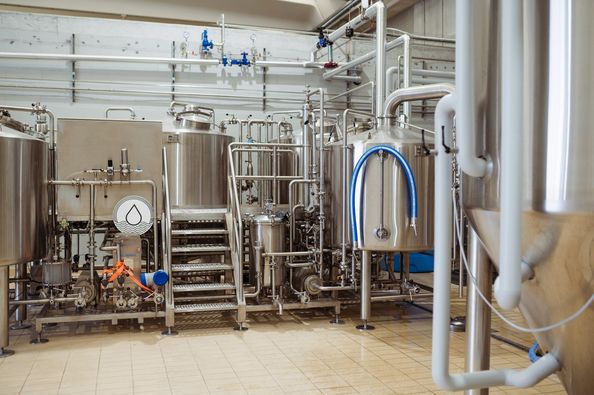
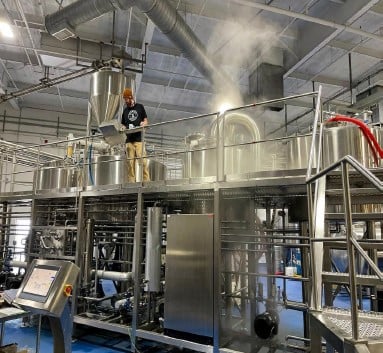
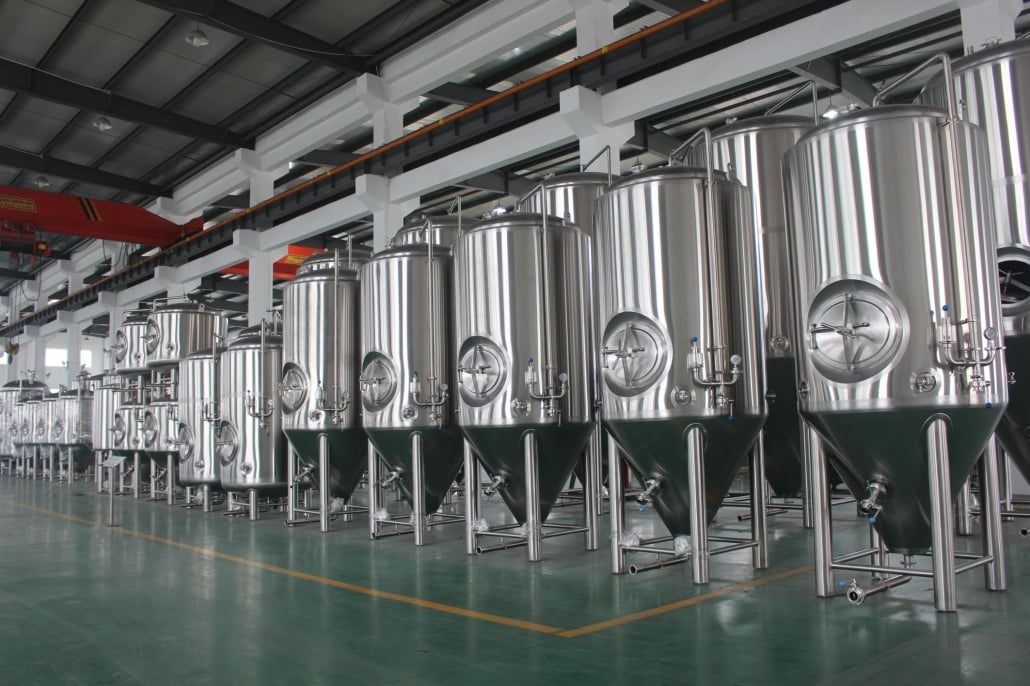
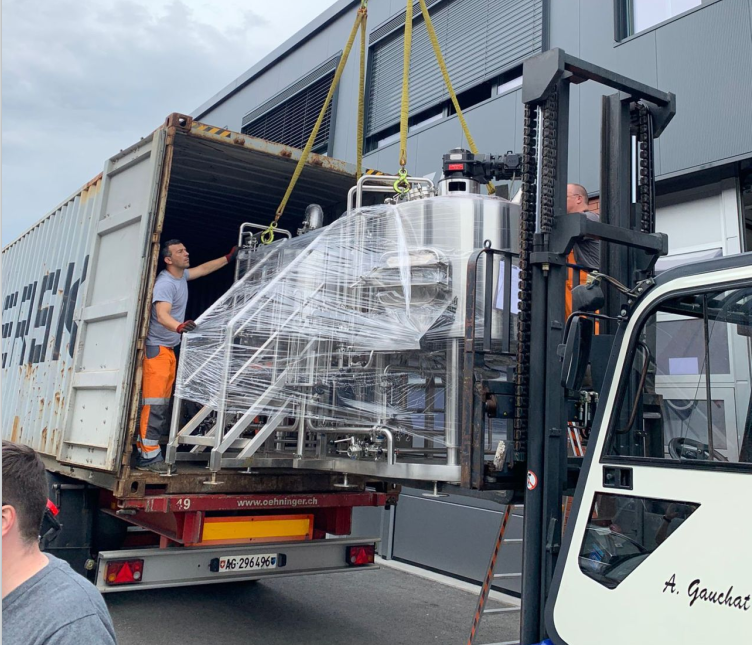
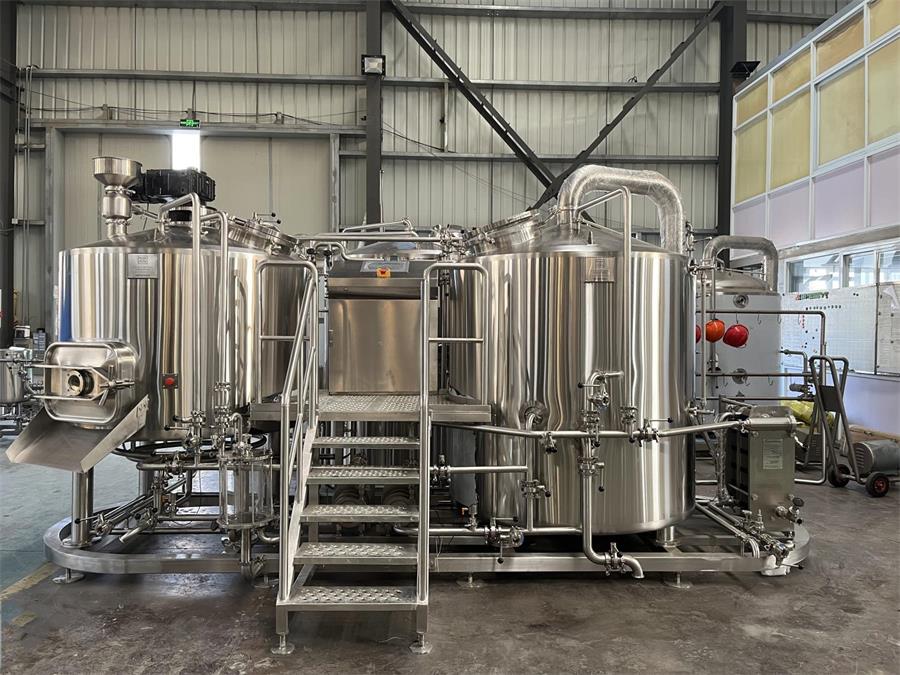
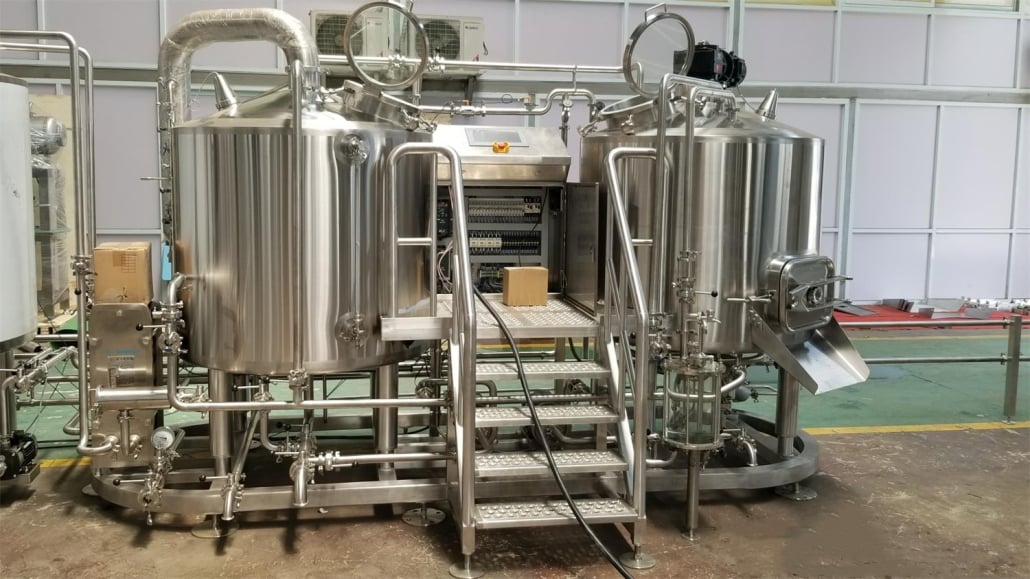
Key Factors When Choosing Professional Brewing Equipment
Choosing the right equipment can be overwhelming, but focusing on key factors can simplify the process. Here’s a helpful table outlining what to consider:
| Factor | Details |
|---|---|
| Capacity | Match equipment size to production needs; overestimating leads to waste. |
| Material | Stainless steel is preferred for durability and cleanliness. |
| Automation | Automated systems save time but may require a higher upfront investment. |
| Space Requirements | Ensure equipment fits within your brewery layout with room for maintenance. |
| Energy Efficiency | Look for systems that optimize energy use to reduce operating costs. |
| Cost | Balance quality and budget; consider long-term ROI. |
Latest Trends in Professional Brewing Equipment
The brewing industry is ever-evolving, and equipment trends are keeping pace. Here are some exciting developments:
1. Automation and Smart Technology
Modern brewing equipment incorporates smart technology, allowing brewers to monitor and control processes remotely. Sensors, IoT devices, and data analytics improve efficiency and reduce errors.
2. Sustainable Brewing
Sustainability is a big focus. Breweries are investing in energy-efficient equipment, water recycling systems, and renewable energy sources to reduce their environmental footprint.
3. Modular Systems
Smaller breweries benefit from modular systems that are easy to expand as production grows. These systems provide flexibility and reduce initial investment costs.
4. Customization
Many manufacturers offer customized equipment tailored to a brewery’s specific needs, such as unique fermenters for specialty beers or bespoke packaging lines.
5. Compact Systems for Microbreweries
With the rise of microbreweries, compact brewing systems are becoming increasingly popular. These systems offer high performance in a smaller footprint.
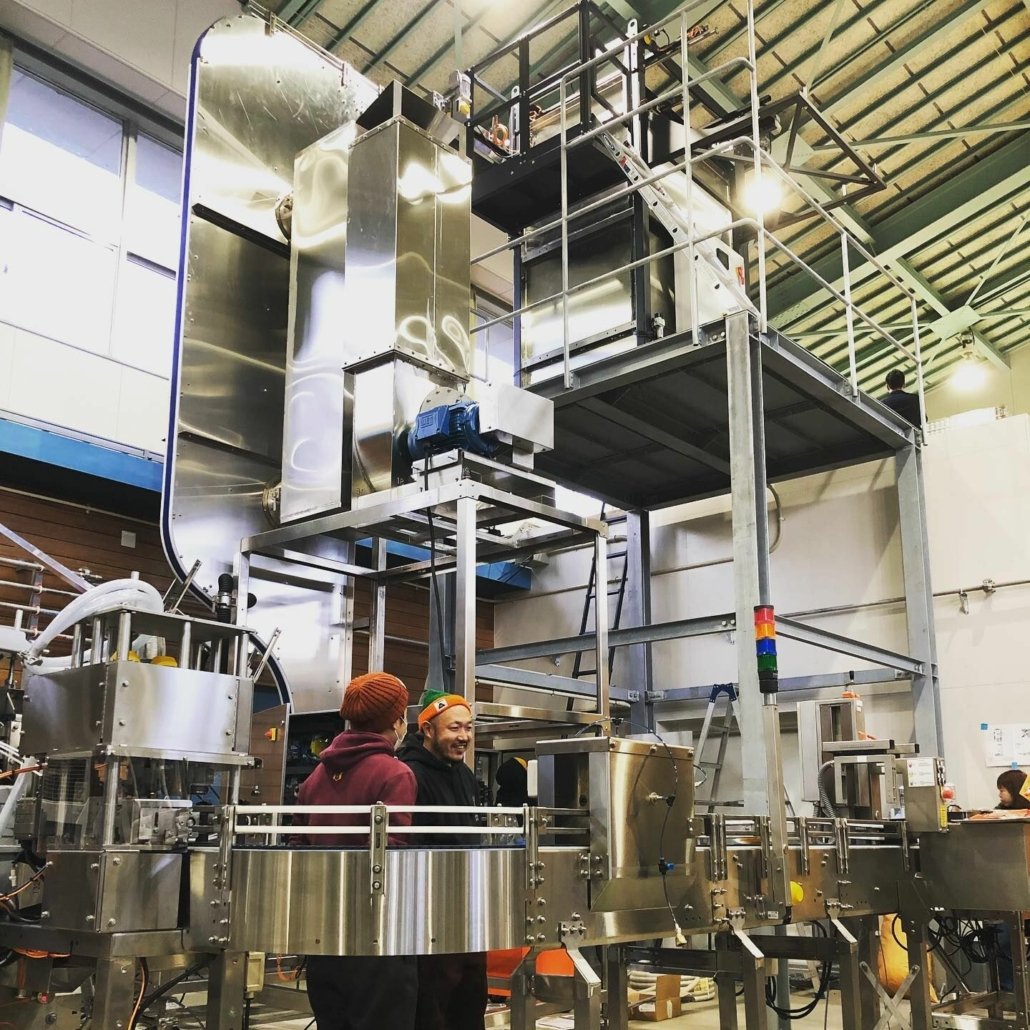
FAQ
| Question | Answer |
|---|---|
| What is the lifespan of brewing equipment? | Most equipment lasts 10-20 years with proper maintenance. |
| How much does professional brewing equipment cost? | Prices range from $100,000 for small setups to over $1 million for large-scale systems. |
| Can I upgrade my existing equipment? | Yes, many manufacturers offer modular upgrades to enhance capacity or functionality. |
| What maintenance does brewing equipment require? | Regular cleaning, calibration, and component checks are essential for optimal performance. |
| Do I need a specific license to use this equipment? | Yes, breweries require licenses to produce and sell alcohol; equipment usage is regulated. |
Frequently Asked Questions (FAQ)
1) What brewhouse size (bbl/HL) should I choose for my first year?
- Estimate monthly sales, divide by 0.8 to account for losses, and match to 2–3 brews/day, 3–4 days/week. Typical first installs: 5–10 bbl for taproom-only, 15–30 bbl for regional self-distribution.
2) Steam, direct fire, or electric—what’s best for commercial Brewing Equipment?
- Steam offers fastest, most even heat and scalability; electric is clean and simpler to permit but needs ample power; direct fire has lower capex but less efficiency and more hot spots. Choose based on utilities, local code, and long-term OPEX.
3) Which automation features give the best ROI on a tight budget?
- PLC/PID temperature control on mash and HLT, lauter rake automation, VFD pumps, knock-out setpoint control, and data logging. These cut variance, time, and rework with modest cost.
4) How do I plan cellar capacity relative to my brewhouse?
- Rule of thumb: 4–6x brewhouse volume in fermenters plus 1–2x in bright tanks depending on packaging cadence. Ensure a mix of tank sizes for production agility.
5) What certifications should I look for on Brewing Equipment?
- Pressure vessels with ASME Section VIII (or CE PED in EU), sanitary weld finishes (≤0.8 μm Ra; 3-A/EHEDG aligned for dairy-grade hygiene), electrical compliance (UL/CE), and food-grade gaskets.
2025 Industry Trends for Brewing Equipment
- Smart brewhouses: cloud-connected PLCs with predictive maintenance and batch analytics standardizing QA.
- Sustainability by design: heat recovery (wort→HLT), CO2 capture for fermentation, and water reuse skids spreading to microbreweries.
- Flexible packaging: quick-change can formats and rotary counterpressure fillers sized for craft.
- Modular, skidded systems: reduce install time, permitting complexity, and commissioning risk.
- Non-alcoholic (NA) and alt-beverage capability: vacuum distillation, membrane dealcoholization, and seltzer/RTD-ready CIP loops.
2024–2025 Cost & Performance Benchmarks
| Category | Typical Range (2025) | Best Practice Target | Notes / Sources |
|---|---|---|---|
| Brewhouse thermal efficiency | 70–82% | ≥85% with heat recovery | BA sustainability manuals |
| Water-to-beer ratio (brewhouse) | 3.5–6.0:1 | 3.0–3.8:1 | Brewers Association |
| Electric energy use (kWh/bbl, electric systems) | 9–20 | 8–12 | DOE field data/vendor specs |
| Steam use (therms/bbl) | 0.8–1.6 | 0.7–1.0 | Manufacturer benchmarks |
| CO2 usage (kg/bbl) | 0.5–1.2 | ≤0.4 with recovery | Supplier case studies |
| Automation adoption (PLC/HMI) | 60–80% of new installs | ≥90% | Industry surveys |
Authoritative sources:
- Brewers Association (benchmarking & sustainability): https://www.brewersassociation.org/
- Master Brewers Association of the Americas (MBAA): https://www.mbaa.com/
- U.S. DOE Better Plants resources for food & beverage: https://www.energy.gov/
Latest Research Cases
Case Study 1: Heat Recovery + CO2 Capture in a 15 bbl Brewhouse (2025)
Background: A growing craft brewery faced rising utilities and CO2 supply volatility.
Solution: Added wort-to-HLT heat exchanger loop, stack condenser, and small-scale fermentation CO2 capture/polish unit integrated with brite tank carbonation.
Results: 19% thermal energy reduction; water-to-beer improved from 4.8:1 to 3.7:1; purchased CO2 reduced by 42%; capex payback projected at 24 months.
Case Study 2: PLC Retrofit and Cellar Rebalance for Throughput (2024)
Background: Inconsistent mashes and lauter times created schedule bottlenecks on a 10 bbl system.
Solution: PLC with recipe control, lauter rake torque feedback, VFD pumps, and cellar mix adjusted to 5x FV + 1.5x BBT capacity.
Results: Brew day shortened by 55 minutes; brewhouse efficiency +3.1 points; on-time packaging improved to 96%; scrap/waste down 18%.
Expert Opinions
- John Palmer, Author of “How to Brew” and brewing consultant
“Plan utilities and process flow first. Good heat exchange, consistent temperatures, and sanitary transfer paths will outperform bigger but poorly integrated equipment.” - Sarah Flora, Professional brewer and operations consultant
“Data logging and basic automation are the most affordable insurance against inconsistency. You can’t improve what you don’t measure.” - Dr. Tom Shellhammer, Professor of Fermentation Science, Oregon State University
“Flavor stability hinges on oxygen control. Specify low-oxygen designs from mash to packaging and invest in DO measurement at critical points.”
Practical Tools/Resources
- Brewers Association Sustainability Benchmarking Tools: https://www.brewersassociation.org/
- MBAA Technical Quarterly and podcasts (equipment best practices): https://www.mbaa.com/
- ASBC Methods of Analysis (DO/CO2, wort/beer tests): https://www.asbcnet.org/
- Brewhouse sizing and efficiency calculators (Brewer’s Friend): https://www.brewersfriend.com/
- Utility incentives for energy efficiency (U.S. DOE & local programs): https://www.energy.gov/
- Packaging line O2 management guides (vendor application notes: Anton Paar, Pentair, GEA)
Last updated: 2025-08-29
Changelog: Added focused FAQs, 2025 trends with benchmarking table, two recent equipment case studies, expert viewpoints, and practical resource links to guide Brewing Equipment purchasing decisions.
Next review date & triggers: 2026-02-28 or earlier if BA releases new benchmarks, utility incentive programs change, or equipment vendors introduce materially improved energy/oxygen control technologies.
Share this entry
Interested in learning more about Brewing Systems including additional details and pricing information? Please use the form below to contact us!
YOLONG BREWERY EQUIPMENT FAQS
- Commercial Brewery / Craft Brewery / Microbrewery / Nanobrewery
- What is The Difference Between Craft Beer and Industrial Beer?
- The Bespoke Differences In Custom Brewing Systems
- Everything You Need to Know About Kettle Souring
- How to Choose Brewing Equipment for Your business?
- How To Choose The-Best Partner To Build Your Commercial Microbrewing System?
- Two Detection Sensors That You Need To Use In Your Brewhouse System
- Remote Control Applications in Brewing Equipment/How does it work?
- How To Clean Your Brand New Brewery Tanks?

